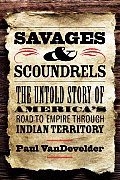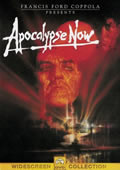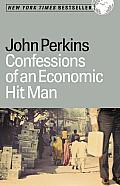
The debate currently raging in the media over the use of torture by the Bush administration is enough to turn any sane person into a political revolutionary. Or an expat. As our over-consumed, over-fed, under-informed and over-entertained society awakens fitfully from its somnabulistic torpor and beholds the "banality of evil" that was the
Bush Reign of Terror, we come reluctantly to the awful truth that the blood spilt by these beasts is on all of our hands. And, sadly, I having proudly counted myself among them, no single institution in our society is more responsible than the pathetic cadre of yapping lap dogs we call
the press. Never in our history has the fourth estate so completely failed to fulfill its responsibilities to inform, expose, and illuminate than it did during the Bush years. Lone voices, like that of
Frank Rich of the
New York Times, have thankfully had the juevos to call a spade a spade by having the temerity to lay the cadaver of democracy at the feet of those most responsible for this travesty. Let us please not equivocate about this simple truth: torture is a crime in this country. Ronald Reagan declared that torture was unacceptable in
any circumstance (though his own agents used it freely in Central America). The entire Bush team should be hauled before an international tribunal,
especially Condoleezza Rice; Dick Cheney; Cheney's mouthpiece,
David Addington;
John Yoo (the city council in Berkeley, California, where Yoo teaches, recently passed a resolution condemning Woo for war crimes); Alberto Gonzales; Karl Rove; and Bubba the Bombastic Bumbler himself.
In the late '60s and early '70s we came very close to bringing the government to its knees over the colossal deceptions contrived by American industry to promote the Vietnam War (see David Halberstam's The Best and The Brightest). The creeps in power back then were pikers compared to the cabal of monsters that ran this country into the ground during Dubya's reign. Never, writes economist Paul Krugman, have the leaders of this nation so savagely trounced the principles on which the country was founded.
The scandal over the use of torture by the Bush Administration has now mushroomed into a global disgrace! I just spent three years writing a book about the cost of abuses of power in the 19th Century. Those abuses, committed by some of our most esteemed leaders, took the lives (and stole the homelands) of hundreds of thousands of Native Americans to satisfy the appetites of an inbred, ignorant, and illiterate citizenry. But for all the havoc they wreaked, and the rivers of blood they spilt, they were amateurs. The Bush Team turned corruption and abuse of power into an art form.
Throughout Dubya's reign of terror, my wife and I more than once considered packing up the family, turning in our passports, and emigrating to another country. I grew up in Latin America, so adopting another culture isn't a leap into the unknown. What stopped us? I don't know. Maybe I was more fiercely loyal to the nation's originating principles than I'd realized. Maybe it was that line from John Stuart Mill: "My love for my country is equaled only by my determination to change it!" Maybe leaving, with the barbarians inside the gate, would have been an act of cowardice. It reminds me of the story when Ralph Waldo Emerson visited Henry David Thoreau in jail after Thoreau was arrested for protesting President Polk's (illegal) war with Mexico.
"David, what are you doing in there?" asked Emerson.
"Ralph," said Thoreau, "the question is, what are you doing out there?!"
 That's a lofty sentiment, today, in a country so mired in self-serving obfuscation and rationalizations that when Antonin Scalia and four of his cohorts on the U.S. Supreme Court hijacked the Constitution (Jeffrey Toobin's account of this disaster, from Justice Seuter's vantage point, should haunt this nation for generations to come), in November 2001 (those are President Carter's own words), we, as a nation, did what? We took a Valium and went shopping. Instead of camping out in the streets and demanding a new election, like they did in Kiev, Russia, we went shopping after electing a Kurtz-like character (see Conrad's Heart of Darkness, or Francis Ford Coppala's Apocalypse Now) to serve as the nation's vice-president. Dick Cheney was the same man who, a few years before, as a member of the U.S. House of Representatives, cast the only vote against a resolution (can you get your brain around this?) condemning apartheid in South Africa. Now, for the next eight years, this man would barricade himself behind executive privilege and run a shadow government that not only made a mockery of the rule of law, and thumbed his nose at Congress and the Constitution, but was also responsible for the deaths of tens of thousands of Iraqi citizens. And he's walking around today as a free man? When PBS's Frontline did a two-hour investigation into Cheney, they had the spine to call it The Dark Side. And that's putting it midly.
That's a lofty sentiment, today, in a country so mired in self-serving obfuscation and rationalizations that when Antonin Scalia and four of his cohorts on the U.S. Supreme Court hijacked the Constitution (Jeffrey Toobin's account of this disaster, from Justice Seuter's vantage point, should haunt this nation for generations to come), in November 2001 (those are President Carter's own words), we, as a nation, did what? We took a Valium and went shopping. Instead of camping out in the streets and demanding a new election, like they did in Kiev, Russia, we went shopping after electing a Kurtz-like character (see Conrad's Heart of Darkness, or Francis Ford Coppala's Apocalypse Now) to serve as the nation's vice-president. Dick Cheney was the same man who, a few years before, as a member of the U.S. House of Representatives, cast the only vote against a resolution (can you get your brain around this?) condemning apartheid in South Africa. Now, for the next eight years, this man would barricade himself behind executive privilege and run a shadow government that not only made a mockery of the rule of law, and thumbed his nose at Congress and the Constitution, but was also responsible for the deaths of tens of thousands of Iraqi citizens. And he's walking around today as a free man? When PBS's Frontline did a two-hour investigation into Cheney, they had the spine to call it The Dark Side. And that's putting it midly.
So, one wonders, have we, as a society, lost our collective mind? What happened to our will to decency, as Pete Hamill asked in his brilliant essay "End Game"? What happened to our common sense? Has the extreme polarization of this nation neutralized our humanity? Has our national soul been mortally wounded, asks Krugman? And do we not see what is at stake for a nation that refuses to apply the rule of law so that its most privileged citizens can seize their political and economic objectives with impunity? Can we not see the price our children are paying when we trade moral principles for comfort and convenience on any scale, large or small?
 In the wake of September 11th, how many of us stopped to reflect on the fact that our CIA toppled the government of Chile on September 11, 1973, and 3,100 people died that day in the capital of Santiago? How many Americans realize that Henry Kissinger is wanted in Latin America for war crimes? Our hands and our corporations (Anaconda Copper, for one) spilt Chilean blood and took many thousands of Chilean lives, and the architects of this madness walked away without having to suffer any consequences for their criminality (see John Perkin's Confessions of an Economic Hit Man or Tim Weiner's Legacy of Ashes: The History of the CIA). Harold Pinter, one of the finest playwrights of the 20th Century, laid out this baleful litany of crimes quite beautifully in his Nobel Prize speech in 2006. Of course, Pinter's speech was immediately dismissed by the sociopaths on the editorial board at the Wall Street Journal, and on Fox News, as the ravings of an English lunatic. That English lunatic was spot on!
In the wake of September 11th, how many of us stopped to reflect on the fact that our CIA toppled the government of Chile on September 11, 1973, and 3,100 people died that day in the capital of Santiago? How many Americans realize that Henry Kissinger is wanted in Latin America for war crimes? Our hands and our corporations (Anaconda Copper, for one) spilt Chilean blood and took many thousands of Chilean lives, and the architects of this madness walked away without having to suffer any consequences for their criminality (see John Perkin's Confessions of an Economic Hit Man or Tim Weiner's Legacy of Ashes: The History of the CIA). Harold Pinter, one of the finest playwrights of the 20th Century, laid out this baleful litany of crimes quite beautifully in his Nobel Prize speech in 2006. Of course, Pinter's speech was immediately dismissed by the sociopaths on the editorial board at the Wall Street Journal, and on Fox News, as the ravings of an English lunatic. That English lunatic was spot on!
What, I wonder, would Chief Justice John Marshall think if he could see the mess we have made of this nation? Or Washington and Adams, or Ben Franklin, for that matter? They'd be astonished that the citizens of this nation have allowed the machinery of governance to get so screwed up. And they'd say, "We told ya so." Democracy? They would laugh out loud at the very proposition! This isn't a democracy, they would cry! This is the very thing we warned you about — a tyranny of oligarchs!
But since we can only speculate as to what they might tell us, let's check in with a few predictions they made over 200 years ago, just for the fun of it. Maybe their insights into human nature can shed a little light on the real cost to mankind (and the planet) for the colossal abuse of power that we have forced on the world for the past eight years. (Coming soon: Bush/Cheney Commemorative Condoms — packaged in a special red, white, and blue collectors box — order here!).
 As most of us know, the Prince of the Potomac was a Virginia aristocrat, but his privileged status did not inoculate him from the ravages of common sense. After watching his peers in government — mostly members of the southern plantocracy — Washington warned Benjamin Franklin that man's most notable attributes were "venality, corruption, and prostitution of office for selfish ends, abuse of trust, [and the] perversions of funds from a national to a private use." One cherry.
As most of us know, the Prince of the Potomac was a Virginia aristocrat, but his privileged status did not inoculate him from the ravages of common sense. After watching his peers in government — mostly members of the southern plantocracy — Washington warned Benjamin Franklin that man's most notable attributes were "venality, corruption, and prostitution of office for selfish ends, abuse of trust, [and the] perversions of funds from a national to a private use." One cherry.
John Adams, many hundreds of miles away in Massachusetts, arrived at a similar conclusion. "I must own to you that the daring traits of ambition and intrigue, and those unbridled rivalries which have already appeared, are the most melancholy and alarming systems that I have ever seen in this country." If government failed to keep its citiizens' appetites in check, the entire experiment was doomed to failure. Two cherries.
But none of the founders had harsher words for future generations than the old fox. One day, said Franklin, citizens would "become so corrupted by liberty as to need despotic government, being incapable of any other." Liberty, unrestrained and unchecked, would quickly become too much of a good thing. Three cherries.
Even King George III, who was given to dark spells of brooding about the outcome of the Revolutionary War, was eventually restored to a more cheerful outlook by the Americans themselves: "Knavery seems to be so much the striking feature of their nature that it may not in the end be an evil that the Americans have become aliens to this kingdom."
In a roundabout way, this brings every writer back to a question s/he needs to answer every day: Why do this? Why write? What's the point? What is the objective, the purpose, of all of this passionate scribbling, this painstaking craft?
There must be an answer to that question for every poet, screenwriter, novelist, essayist, journalist, and diarist who is brave enough to stare at the blank page, or screen, or journal page, and fling himself into the void. To step out onto the highwire, without a net, for the good of those s/he will never meet, and proceed to the other side. To give the voiceless the dignity they deserve. Or, to bring a little bit of justice to an unjust world! "Justice shalt thou pursue," says Deuteronomy.
That's it! That's the thing! And it's good enough for me.